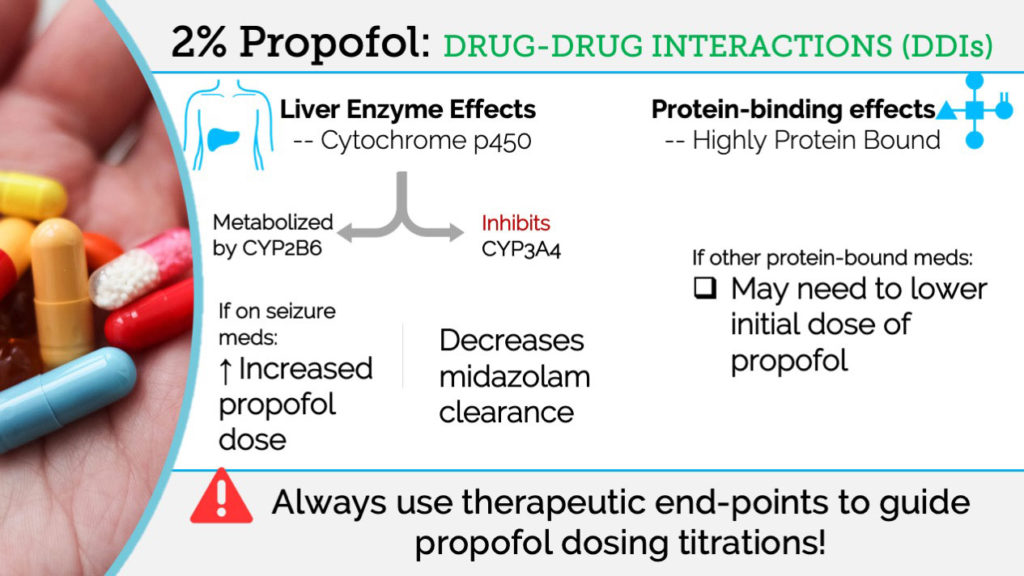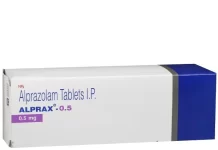Propofol slows the activity of your brain and nervous system. Propofol is used to put you to sleep and keep you asleep during general anesthesia for surgery or other medical procedures. It is used in adults as well as children 2 months and older. Propofol is also used to sedate a patient who is under critical care and needs a mechanical ventilator (breathing machine). Propofol Drug Tablet Uses Benefits and Symptoms Side Effects

Warnings
Before you receive propofol, tell your doctor about all your medical conditions and allergies. Also make sure your doctor knows if you are pregnant or breast-feeding. In some cases, you may not be able to use propofol. The FDA cautions recommends against using propofol if you are allergic to eggs, egg products, soybeans, or soy products.
Before receiving this medicine
You should not receive propofol if you are allergic to it. Tell your doctor if you have allergies to eggs, egg products, soybeans, or soy products.
To make sure this medicine is safe for you, tell your doctor if you have:
epilepsy or other seizure disorder; or
high cholesterol or triglycerides (a type of fat in the blood); or
liver or kidney disease.
Anesthesia medicine may affect brain development in a child under 3, or an unborn baby whose mother receives this medicine during late pregnancy. These effects may be more likely when the anesthesia is used for 3 hours or longer, or used for repeated procedures. Effects on brain development could cause learning or behavior problems later in life.
Negative brain effects from anesthesia have been seen in animal studies. However, studies in human children receiving single short uses of anesthesia have not shown a likely effect on behavior or learning. More research is needed.
In some cases, your doctor may decide to postpone a surgery or procedure based on these risks. Treatment may not be delayed in the case of life-threatening conditions, medical emergencies, or surgery needed to correct certain birth defects.
Ask your doctor for information about all medicines that will be used during your surgery or procedure. Also ask how long the procedure will last.
Propofol can pass into breast milk and may harm a nursing baby. However, as propofol acts and leaves the body quickly, most women can resume breastfeeding as soon as they are recovered from anesthesia and fully awake.
Anesthesia Induction:
Propofol is commonly used to induce general anesthesia before surgery or medical procedures. It helps patients transition smoothly into an unconscious state.
Maintenance of Anesthesia:
Once a patient is under anesthesia, propofol may be administered continuously to maintain the desired level of sedation during surgical procedures.
Sedation in Critical Care:
In intensive care units (ICUs), propofol is sometimes used for sedation of critically ill patients requiring mechanical ventilation.
Diagnostic Procedures:
Propofol may be used for sedation during certain diagnostic procedures, such as endoscopies or imaging studies.
Propofol Side Effects:
Respiratory Depression: Propofol can cause respiratory depression, particularly when administered at higher doses. This effect may be more pronounced when combined with other medications that depress respiratory function.
Hypotension:
Propofol can lead to a drop in blood pressure, especially during induction. This effect is usually transient but may require intervention in some cases.
Pain on Injection:
Propofol can cause pain or burning at the injection site. To minimize this discomfort, it’s common to mix propofol with lidocaine or administer lidocaine before propofol.
Allergic Reactions:
Although rare, allergic reactions to propofol can occur. Symptoms may include rash, itching, or swelling.
Hypertriglyceridemia:
Prolonged use of propofol, especially in high doses, has been associated with elevated triglyceride levels. This is more relevant in patients receiving propofol for an extended period in critical care settings.
Propofol Infusion Syndrome (PRIS): In rare cases, particularly with prolonged high-dose infusions, propofol can lead to a potentially fatal condition known as propofol infusion syndrome. Symptoms may include metabolic acidosis, rhabdomyolysis, and cardiac failure.
It’s important to note that propofol should be administered by trained healthcare professionals in controlled settings due to its potential for rapid induction of anesthesia and associated side effects. The use of propofol should be carefully monitored, and the dosage adjusted based on individual patient factors to minimize the risk of adverse reactions.
Propofol Drug Uses and Side Effects Propofol tablet Benefits and Side Effects Propofol Drug Use in hindi Propofol Drug Side Effects kya hai Propofol Drug Use in hindi Propofol Drug Side Effects kya hai Propofol tablet Uses and Symptoms Propofol Drug Use in hindi






